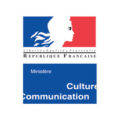


“I’ve always been fascinated by the unique way in which he pronounces words and selects notes. I wanted to share this with those who don’t master the Spanish language. That’s why we decided to take a different approach in this recording, one that blends ‘classical’ works with those from other eras.”
Leonardo García Alarcón
Joan Manuel Serrat is omnipresent in my childhood memories of Argentina. His poetry and music were synonymous with family barbecues. Like millions of people in Latin America and Spain, “De vez en cuando la Vida” made me cry. Joan Manuel Serrat is part of our lives. He’s our Jacques Brel! Or if we draw a comparison with the poets and musicians in Florence in the 16th century, he’s a bit like our own little Camerata Fiorentina. Serrat has found a way for the whole of Latin America and Spain to reappropriate the works of its poets. Serrat also stands for freedom and the fight against dictatorships. His song “Mediterraneo” is one of the emblematic pieces of his career. It has almost become an anthem that resonates particularly strongly today: “I was born in the Mediterranean”!
I asked my good friend Quito Gato to arrange these songs for Cappella Mediterranea. The orchestration involves instruments that are typical of the 17th century: recorders, cornet, violins, viola da gamba, cellos, lutes, harp, harpsichord, organ, plus some percussion and a double bass. These early instruments allow us to travel back in time and put Serrat’s Romances side by side with Mateo Flecha’s Ensaladas (1481-1553) (“La Bomba”), a piece by Francesco Valls, a Catalan composer who has been forgotten and yet is one of the greatest composers of 17th-century Spain, Guillaume Dufay’s polyphony and a composition by Antonio José Cavanilles that is reminiscent of a Bach Passion. And let’s not forget ‘Xacaras’, a satirical genre from the Golden Age (Francisco Gómez de Quevedo, Pedro Calderón de la Barca) and “Musica Callada” by Catalan composer Frederico Mompou, which is transcribed here for the harp. […]
“When we began recording, almost none of the musicians in Cappella Mediterranea – all of them from European and Latin American countries – knew Serrat. As the recording progressed, I could see to what degree they had embraced this universal music and were joyfully making it their own. Through this recording, I want everyone all over the world to make Joan Manuel Serrat’s music their own.”
Leonardo García Alarcón
El Correo – Serrat se pone barroco
“There are dozens of versions of Joan Manuel Serrat’s song “Mediterráneo”. It has been sung in almost every possible rhythm and accent, but now a new album has been released with what is certainly the most original version to date. It is a Baroque version by Cappella Meditarrenea, the ensemble created by Leonardo García Alarcón a little over a decade ago. Previously, the ensemble has taken on repertoire that ranges from Zamponi to Cavalli, by way of Bach and Handel.”
César Coca for El Correo
Music Web – Richard Hanlon
“Alarcón’s goal is to show how Serrat’s ability as a setter of the Spanish language owes much to models from the Spanish Golden Age. Indeed many of Serrat’s songs are influenced and inspired by poets such as Machado, Lorca, and Neruda. One consequence of Gato’s imaginative arrangements and Alarcón’s ambitious cross-pollination is that the ancient material takes on a more modern feel, whereas Serrat’s songs assume a ‘classical’ stature that their obvious quality undoubtedly merits.
It absolutely defies intellectual critical analysis and justification. It is a delightful hour spent in the company of some fantastic musicians who are paying deserved and unusual homage to a master songwriter of whatever era and style. And as I have found, it stands up admirably to regular repetition.”
Richard Hanlon for MusicWeb
This programme is sponsored by a Swiss family foundation, Anne Geisendorf, a patron of Cappella Mediterranea.
Cappella Mediterranea is supported by a private foundation in Geneva.



